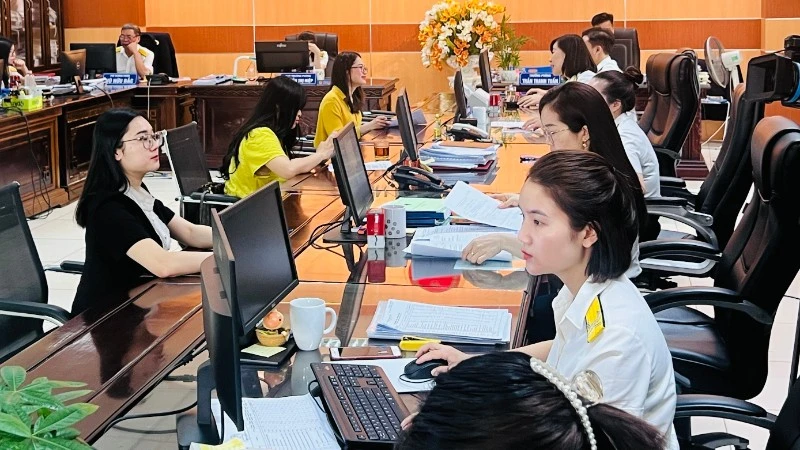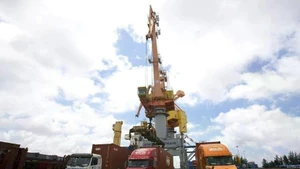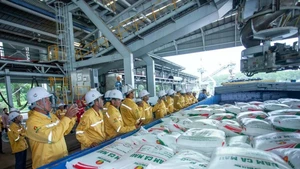Specifically, domestic revenue, which accounts for the largest share, reached nearly 96.9% of the estimate. Revenue from crude oil was less favourable, at just 69.9% of the plan, down 15.6% year-on-year due to price and output fluctuations. In contrast, import–export revenue showed improvement, estimated at 98.8% of the plan, rising nearly 12% from 2024.
On the expenditure side, budget spending for the nine months reached 1,591.3 trillion VND, equivalent to 61.7% of the year’s plan. Regular expenditures, defence–security spending, interest payments, and social welfare obligations were fully met, achieving about 68–69% of the plan. However, development investment disbursement remained slow, with only 53.7% of the planned capital released, raising concerns over the progress of key projects.
To support arising tasks, the central budget tapped about 25.9 trillion VND from contingency reserves, of which more than 6.1 trillion VND was allocated to localities for administrative reorganisation, disaster and epidemic response, and production recovery.
Looking ahead to the final quarter, the Ministry of Finance noted significant pressures, particularly as crude oil revenue remains volatile. Priority tasks include broadening the tax base, strengthening management of emerging revenue sources such as e-commerce, expediting tax debt recovery, and curbing revenue losses. On the spending side, the key requirement is to accelerate public investment disbursement to ensure progress on socio-economic development commitments.
On October 2, 2025, Prime Minister Pham Minh Chinh signed Directive No.184/CD-TTg on state budget management in the remaining months of the year. The directive acknowledged positive results, noting that by September 30, budget revenue had nearly reached the full-year estimate, despite the Government’s implementation of tax, fee, and charge reductions and deferrals amounting to over 200 trillion VND to support businesses and citizens.
However, given the complex global economic–political environment, along with unpredictable natural disasters and epidemics that could directly affect growth and fiscal balance, the Prime Minister requested ministries, agencies, and localities to implement comprehensive solutions.
For revenue, the Ministry of Finance instructed the tax and customs sectors to intensify management, prevent losses, and ensure accurate, sufficient, and timely collection. Efforts will also focus on expanding the tax base in areas such as e-commerce, food and beverage services, and retail; advancing digital applications; and rigorously rolling out e-invoices generated from cash registers, aiming for state budget revenue in 2025 to grow at least 25% above the estimate.
For expenditures, the Ministry of Finance was tasked with strict budget management, practising thrift, reinforcing fiscal discipline, and expediting disbursement of public investment capital, especially for national priority projects, with the goal of completing 100% of the 2025 capital plan. The Ministry must also review and cut unnecessary expenditures, reorganise, and handle surplus public assets to prevent waste and losses.
Regarding policy coordination, the Ministry of Finance is required to work closely with the State Bank of Viet Nam and other relevant agencies in fiscal–monetary management, with the dual aim of fostering growth and controlling inflation while maintaining macroeconomic stability and major economic balances.
Additionally, the Prime Minister directed the Ministry of Finance to promptly compile and report a plan for reallocating public investment capital from ministries, agencies, and localities that fail to allocate or disburse funds on schedule to those with urgent capital needs, no later than October 10, 2025. This reallocation is intended to accelerate the implementation of key projects in accordance with regulations. These measures aim to ensure fiscal stability, accelerate key projects, and achieve the year’s economic development commitments.
















